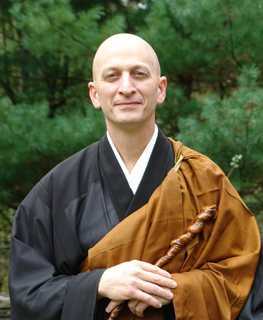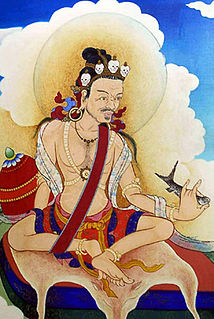A Quote by Tara Brach
The Buddha never intended to make desire itself the problem. When he said craving causes suffering, he was referring not to our natural inclination as living beings to have wants and needs, but to our habit of clinging to experience that must, by nature, pass away.
Related Quotes
And yes, there definitely are many good desires. For example, without the desire for food we would not stay alive. It is when our desire becomes an unquenchable craving or obsession, or causes us to do harm to ourselves or others, that it creates suffering and unhappiness. If you have ever been hurt because you tied your happiness or well-being to a person, place, opinion, self-identity, behavior, or goal, then you have firsthand experience of desire.
We are all going, I thought, and it applies to turtles and turtlenecks, Alaska the girl and Alaska the place, because nothing can last, not even the earth itself. The Buddha said that suffering was caused by desire, we'd learned, and that the cessation of desire meant the cessation of suffering. When you stopped wishing things wouldn't fall apart, you'd stop suffering when they did.
We must remember our duty to Nature before it is too late. That duty is constant. It is never completed. It lives on as we breathe. It endures as we eat and sleep, work and rest, as we are born and as we pass away. The duty to Nature will remain long after our own endeavors have brought peace to the Middle East. It will weigh on our shoulders for as long as we wish to dwell on a living and thriving planet, and hand it on to our children and theirs.
I also came to see that liberalism's superficial optimism concerning human nature caused it to overlook the fact that reason is darkened by sin. The more I thought about human nature the more I saw how our tragic inclination for sin causes us to use our minds to rationalize our actions. Liberalism failed to see that reason by itself is little more than an instrument to justify man's defensive ways of thinking. Reason, devoid of the purifying power of faith, can never free itself from distortions and rationalizations.
No thought about the past or future can pull you away from your present peace and joy. The universe exists in this present moment. No desire can pull you away from this present peace, not even the desire to become a Buddha or the desire to save all beings. Know that to become a Buddha and to save all beings can only be realized on the foundation of the pure peace of the present moment.
What I believe is that we have this extraordinary spirit inside ourselves, which for me is our Buddha nature. I believe we are in the process of opening and getting closer and closer to our Buddha nature and stripping away all that is covering it. I don't think I'm going to end up meeting this one being up there or out there.
One of the primary conditions for suffering is denial. Shutting our mind to pain, whether in ourselves or others, only ensures that it will continue. We must have the strength to face it without turning away. By opening to the pain we see around us with wisdom and compassion, we start to experience the intimate connection of our relationship with all beings.





































